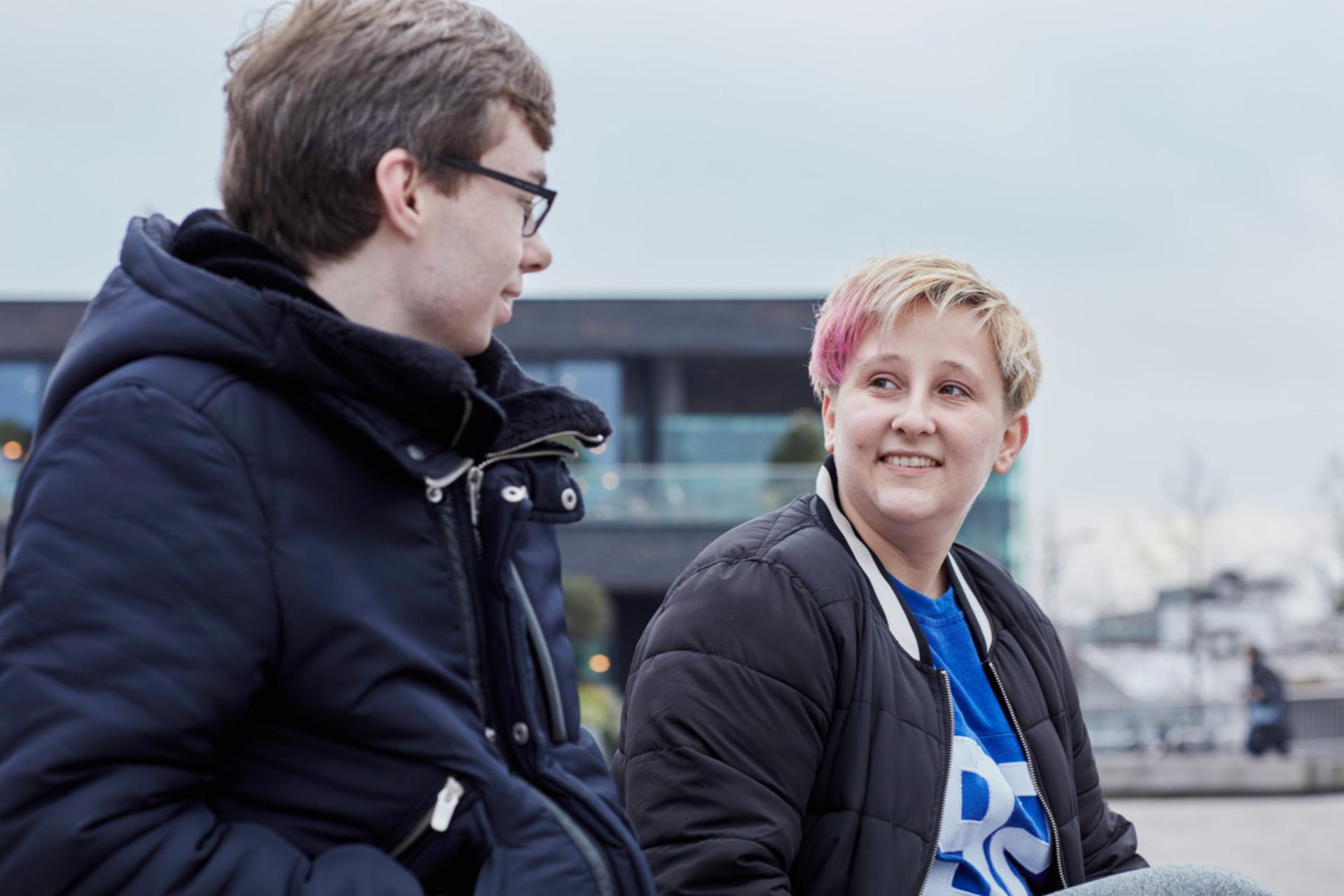This article was written in September 2017. Since then, thanks to the work of NGOs including our member HERA, Macedonia’s government has committed to providing long-term funding for all HIV programmes for marginalised people.
Just off a highway in downtown Skopje, halfway down a long concrete track, a middle-aged man stamps his feet before a door. He is here to pick up clean needles from a drop-in centre run by HOPS – Healthy Options Project Skopje – an NGO that provides drug users and sex workers with clean needles, contraception, information and advice.
Inside, four women are busy packaging up needles, typing on computers and talking to clients. One of them is Silvana Naumova, a social worker and programme manager who has been working at HOPS since 2003.
“Immediately after completing my studies of social work and policy, I started my work with sex workers,” Silvana says. “I was motivated because it was a group of people who had been marginalised and find themselves at the edge of society.”
HOPS started life in the mid-nineties as a needle exchange programme for drug users, with the aim of preventing the spread of HIV. Spurred by the desperate needs of these people, it quickly evolved into a centre providing social welfare, medical services, legal aid, human rights campaigning, and educational workshops and services to support people’s basic needs of clothing and food.
In 2000, it launched a programme for sex workers – both those working on the street, those employed in brothels and massage parlours, and those living in the Roma community of Šuto Orizari (Šutka) in the Skopje suburbs. The focus is on sexual health education, services and rights, but spans a broad gamut of social welfare and education services as well.
There is a lot of crossover between these two groups: around a third of sex workers use drugs – usually heroin or methadone if they work on the streets, or cocaine, ecstasy, amphetamines and marijuana if they work “behind closed doors”. Some are forced to do drugs by clients.
“We deal with the most marginalised groups of sex workers and drug users,” says Silvana. “They’re most marginalised in terms of lack of education in the first place – some of them have incomplete primary education; some of them do not attend school at all.”
Through its close partnership with IPPF member HERA, too, HOPS builds links with young, marginalised people: young people using HERA services are referred on to HOPS if they are using drugs or are involved in sex work.
Many people have no idea how to exercise their rights to healthcare and social welfare, particularly if they are Roma, for whom language barriers and a lack of ID are major problems, she says.
Violence and discrimination is a fact of life for many sex workers and drug users.
“Sex workers working on the street are most exposed to violence … from their clients, the police passers by … domestic violence.”
Drug users are often harassed or discriminated against because they are so easy to spot.
Risky behaviour like having unprotected sex with long-term partners or sharing needles is widespread among drug users, Silvana says. The sex workers they support tend to look after themselves better.
“As far as sex workers that we are in touch with are concerned, I can say that their knowledge about sexual and reproductive health and rights and how to protect themselves from HIV and STIs is at a very low level,” she says. Since HOPS began running sex worker support services, “the level has risen a lot”.
Last year, HOPS supported around 230 sex workers, both through its drop-centres, mobile testing vans, and through outreach workers who offer support, contraception and advice to women working on the streets.
“I think that if it weren’t for HOPS, the sex workers would not know that much about how to protect their health,” Silvana adds.
She is currently working hard to ensure the organisation is sustainable and well-funded in the coming years, a goal made more difficult after the Global Fund phased out support for Macedonian HIV programmes in late 2016.
Although HIV levels are not high in Macedonia, the fact that so many vulnerable groups rely on NGOs like HOPS – whose futures look more uncertain since the Global Fund withdrawal – make their safety and protection precarious.
“If those services stopped, we are afraid there would be a pandemic.”
Photo: Silvana Naumova outside the drug support clinic run by HOPS, credit: Jon Spaull / IPPF EN
when
country
North Macedonia
Subject
HIV and STIs
Related Member Association
Health Education and Research Association (HERA) - North Macedonia









